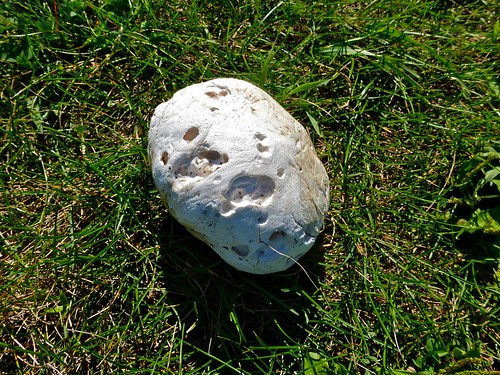Dylan Farrow puts her sad face between you and whatever Woody Allen movie you might have been hoping to enjoy.
Over at Reason,
Nick Gillespie looks like he's working up to a response, a reasonable response, to the questions he frames — "Did Woody Allen Molest His Daughter, Dylan Farrow? And If So, Should You Disavow His Films?"
Gillespie reveals that he doesn't even like Woody Allen. He says Allen "ceased to produce consistently interesting movies decades ago," which either means that he hasn't noticed "Blue Jasmine" or that he really meant to write "ceased the consistent production of interesting movies decades ago." "Blue Jasmine" (2013) is certainly consistently interesting. So was "Midnight in Paris" (2011). Maybe "To Rome With Love" (2012) was only interesting in parts. But, good lord, Woody Allen
has consistently made interesting movies. Look at
the IMDB list. He has made at least one movie in every year since 1977, which is probably when Gillespie imagines that he
stopped being interesting.
Gillespie shifts the topic to the more general question — "When — if ever — does the biography of a creator mean that you cannot or should not in good conscience patronize an artist?" — and he doesn't even answer that. He throws it over to the readers: "What do you think readers?"
But I want to get back to Woody Allen. Dylan Farrow writes: he "sexually assaulted" her. I'm putting that in quotes not to express disbelief, but to observe the generality of the term. We're told that she was playing with an electric train but not what body part of his came into what sort of contact with what body part of hers. We're told "what he did to me in the attic felt different" from other things he did that she also did not like. Those other things are specified: He had her under the covers in bed with him when he was "in his underwear." He put his thumb in her mouth. He put "his head in [her] naked lap."
After a custody hearing denied my father visitation rights, my mother declined to pursue criminal charges, despite findings of probable cause by the State of Connecticut – due to, in the words of the prosecutor, the fragility of the "child victim."
So there will always be a cloud on Woody Allen's reputation, but it's not as though he could have removed the cloud if only he'd been prosecuted and had his day in court. He'd have enjoyed the presumption of innocence, and that means suspicion would remain even if there were a not guilty verdict.
These charges are not new. I read
the 1992 Vanity Fair article that had all of this material, and I've seen maybe 15 Woody Allen movies since then, some more than once. "Blue Jasmine" is, I think, the only movie I saw this year in the theater, and I returned to the theater to see it a second time. So, through my own actions, I've obviously answered Gillespie's question yes, in the case of Woody Allen movies. I can in good conscience go to see his movies. For one thing — unlike Gillespie — I like Woody Allen. It's fine to have your "good conscience" about avoiding things you don't even want to do. The morality test only applies when — to use
Woody Allen's Emily Dickinson's expression — "The Heart wants what it wants."
I feel empathy for Dylan Farrow, but I think we are living in a fallen world, and we are surrounded by human beings all of whom have their sins, known and unknown. To purport to know what cannot be truly known is also a sin. To punish and shun one person out of preference for another when the truth is not known is surely not an exalted virtue, if it is a virtue at all. The works of art exist and are real and apart from the artist. And when someone chooses — as Woody Allen has — to remain silent all these years, to keep to himself, producing good work, incurring no further charges of harming anyone, I think we are not doing something morally wrong to receive that work for whatever value it has, independently, as art.
That said, it appears that the celebration of Woody Allen, the man, on the Golden Globes TV show
is what provoked Dylan Farrow to come forward. But Woody Allen was thousands of miles away from that event. He was not soaking up the adulation. The art/artist separation remains, and yet we can reframe Gillespie's question to focus on a more particular consumer-end moral problem: At what point do accusations of wrongdoing against an artist make it wrong to enjoy a staged celebration of the man?
Woody Allen himself seems to loathe all staged celebrations of artists. Has he ever appeared at any awards show? Perhaps he's got a personal awareness of guilt that shames him away. But we are all sinners, and it might be best if we all had an aversion to the celebration of celebrities.
To paraphrase
Jesus: Let him who is without sin among you be the first to watch the Golden Globes.
UPDATE:
"Mr. Allen has read the article and found it untrue and disgraceful. He will be responding very soon."










